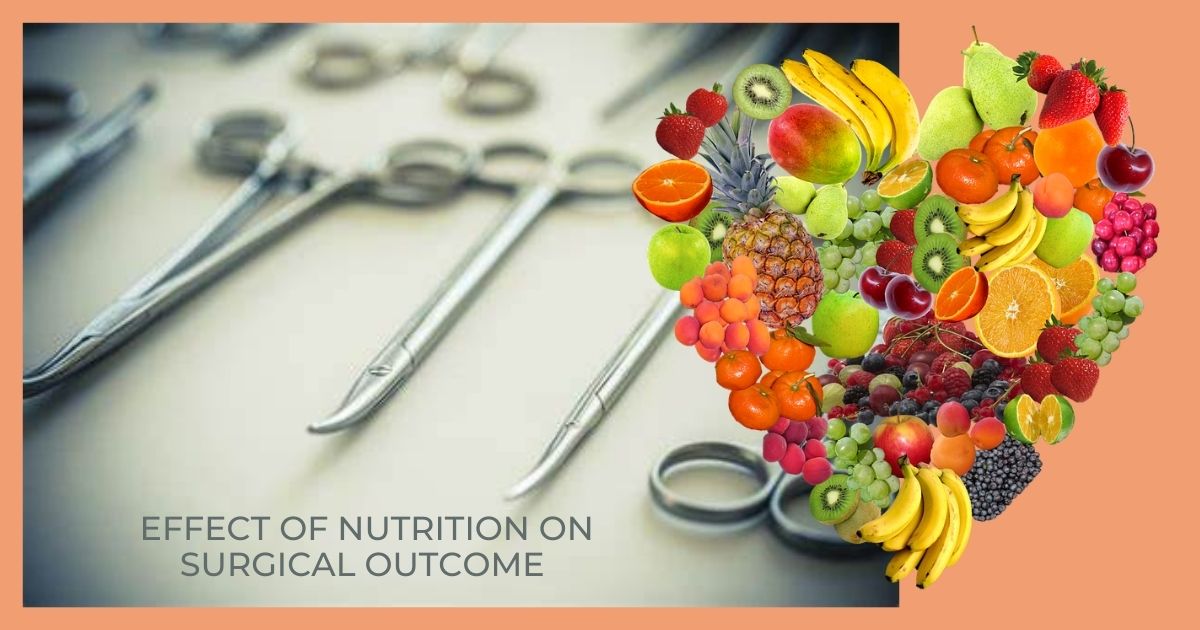Effect of Nutrition on Surgical Outcome
Malnutrition and undernutrition are common in India. Patients with the severity of these conditions who undergo surgery can have delayed recovery and in worst-case scenarios develop postoperative complications. Severely malnourished patients are not recommended for any elective surgical procedures. In elective surgeries, the nutritional status of the patient is the only factor that determines the outcome of the surgery. The nutritional status of their body is bettered first and only then they are recommended to undergo the intended surgical procedure. So what are the effects of malnutrition or undernutrition on surgical outcomes?
What is malnutrition and undernutrition?
When someone is severely deprived of food (nutrition) primarily because of non-availability, poorer socioeconomic conditions, and certain diseases where nutrition absorption is badly compromised, etc., it is termed malnutrition. In other words, malnutrition is a condition where calorie consumption is also less and protein consumption is also less.
On the other hand, inadequate consumption of food due to poorer health, certain diseases where nutrition absorption is partially compromised, alcohol intake, etc., can lead to inadequate nutrition absorption by the body.
In both these states deficiency of energy, protein or specific nutrients take place. This deficiency produces changes in bodily function which can be fortunately reversed by nutritional support.
Effects of Malnutrition on Surgical Outcome
Most surgeons can physically observe that a patient is malnourished. So such patients are recommended to undertake surgery only when they are sufficiently nourished before surgery. Some of the immediate effects are underlined below.
- Anesthesia recovery after surgery becomes a challenge. So when a person is cachexic there is a strong possibility of anesthesia risk.
- More blood loss during the surgery.
- Higher rate of Lung infection.
- Any surgery is a planned trauma. Protein is required after surgery for joining the incision-done tissues. It is the building material of the body and it is the basics of healing. So when a body is deprived of protein, healing after surgery becomes a challenge.
- Zinc, a mineral, also plays a vital role in healing. If a body is deprived of such essential minerals and vitamins along with building blocks like protein, healing post-surgery becomes a challenge.
Some of the long term issues that can arise are infections in the surgical area, suture problem leading to incisional hernia, etc
General Effects of Less Nutrition on the body
- It weakens the body’s immune power.
- It weakens the stress resistance which means if surgery is conducted the body cannot effectively fight the stress caused by pain, infection, etc which are probabilities after a surgery.
- An increase in surgical stress can lead to changed neurohormonal, metabolic, and immune responses of the body. This can lead to more inflammation and can affect wound healing.
- Since there is an increase in the wound healing time, the stay at the hospital also increases considerably as a result.
- It increases muscle wasting
- It increases the risks of complications.
Effects of Restriction of Postoperative Nutrition Intake
Whenever surgery is done, the doctors will advise restricting nutrition intake for a specific period. The period of restriction of nutrition is higher for complex surgeries. Generally speaking, the restriction of nutrition period for non-complex laparoscopic surgeries like hernia repair, appendix removal, piles, etc, is very low. For laparoscopic bariatric surgeries and other weight-loss surgeries, the restriction of the nutrition period will be little on the higher side. If the surgery performed is open and is complex, then the restriction of the nutrition period will be very high. So the bodies in such conditions need to cope with the restricted nutrition deficiency. For people who are undernourished and malnourished, the body is already stressed without adequate nutrition. So if they undergo any surgery and put their body under more stress (more nutrition deficiency) the consequence will be immense.
Pre-operative Nutrition for Malnourished
Most people who are undernourished will progress to oral nutrition after surgery and that will be sufficient in a majority of cases. Early nutritional intervention may not be warranted unless it is called for and recommended by the surgeon in certain cases. But in the case of severely malnourished patients, a pre-operative nutritional intervention is recommended for at least 7 days. If oral nutrition is not possible for severely malnourished patients, parenteral nutrition (through veins or intravenous) is recommended. Sometimes even for healthy-looking patients, parenteral nutrition may be recommended. Generally, a body that is not denied its minimal nutrition is able to cope well with surgical outcomes.

